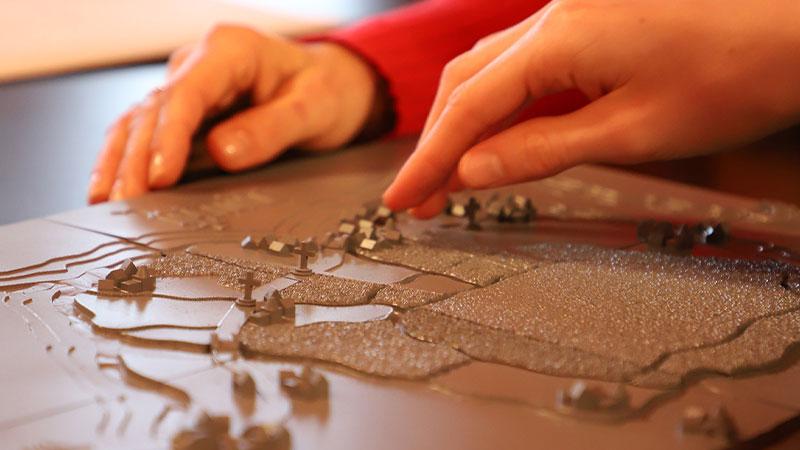A pioneering new workshop using 3D printed versions of historical documents has launched at The National Archives, thanks to cutting-edge work by George Rhodes, Digital Accessibility Team Lead from the University of Westminster.

The Sensing the Archives workshop has been designed from the ground up for blind and partially sighted students. It features tactile 3D models of key historical documents, including a medieval map and a Tudor wage slip, made using a new method developed by Rhodes as part of a collaboration between the University, All Able Ltd and The National Archives. Developed by The National Archives’ Education and Outreach team, with consultation from New College Worcester, a school for young people who are blind or visually impaired, the documents give students the chance to feel and interpret history.
Rhodes created the models using UV-cured resin 3D printing. His approach makes it possible to produce highly detailed tactile resources without specialist equipment or expertise, helping to open up access to the UK's archival heritage.
The free workshops are supported by the Friends of The National Archives and The National Archives Trust, with additional funding from the Powell Family Foundation, the Edith Murphy Foundation and the Spectacle Makers' Charity.
The files for the 3D models, developed by Rhodes, are also being made publicly available, so other educators, institutions and individuals can download and print the tactile resources themselves.
Rhodes said: “I wanted to make 3D maps more intuitive and engaging. The textures and level of detail that resin printing allows means blind and visually impaired students can better explore and interpret the shape and features of historical landscapes and documents.”
Ellen Oredsson, Digital Projects Officer at The National Archives, added: “We're thrilled to be launching this new workshop and to have collaborated with George Rhodes from the University of Westminster. His expertise in 3D printing has helped us bring our records to life in a new and deeply accessible way.”
These workshops directly contribute to the United Nations Sustainable Development Goals (SDG) 10: Reduced Inequalities and 17: Partnerships for the Goals. Since 2019, the University of Westminster has used the SDGs holistically to frame strategic decisions to help students and colleagues fulfil their potential and contribute to a more sustainable, equitable and healthier society.
Find out more about digital accessibility at the University of Westminster.


